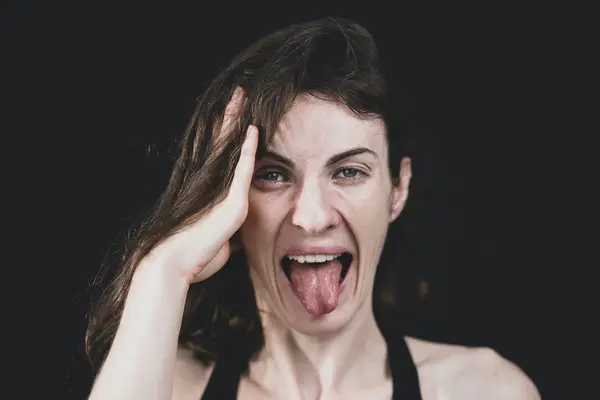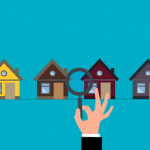
Has it always been your dream to own your own home? But now it’s either about to happen or is happening and you’re buying your first house but you’re freaking out?
So what do you do if you’re buying your first house and freaking out? If you’re buying your first house and freaking out, don’t worry as this is quite normal like with anything you do for the first time. Buying your first house is a big commitment and responsibility, but do your due diligence and make sure you can afford the ongoing costs and you’ll be just fine.
The feelings of nervousness about buying a house for the first time are normal. Which is because it’s something new and out of your comfort zone. So let’s take a look at what you need to do to reduce any severe anxiety you have about buying a house.
What you need to do as a first time buyer to reduce your anxiety and stress and to stop freaking out
There are a number of things you can do to reduce your anxiety about buying a house for the first time. You are walking into the unknown and you’ll need any help you can get. On that note, if you need answers to any questions, please feel free to ask this on our property forum, or pop a comment below.
But first here’s a list of things you can do to help with first time buyer’s anxiety.
List of things to do to stop you freaking out buying your first house:
- Due diligence.
- Know and check your credit rating.
- Make sure you pay for a home inspection or survey on your new house.
- Use a mortgage broker to arrange your lending.
- Be careful who you ask for advice.
- Make sure you’ve saved the closing or completion costs to be able to finalise the purchase.
- Prepare a budget for the ongoing costs.
- Be proud of yourself.
- Build-in a finance buffer.
Let’s look at teach of these in a bit more detail.
1. Doing your due diligence will help to make sure your first time home buy is a good one
When you buy a house you must do your due diligence. This applies whether you’re buying a house for the first time or you’re a seasoned home-buyer. The due diligence you should do on your first house begins by choosing the right location.
When you buy a house you should always have an eye on its resalability too. Which means how easily it can be resold in the future. The old saying “buy the worst house on the best street” still applies.
Further important due diligence includes knowing your house values. Before you make an offer on your chosen house you should already know if your offer is inline with its market value. Bear in mind that estate agents get values wrong. Which is why I recommend you read this article on why estate agents valuations vary so much.
Also, before you offer on any house I recommend you read this article about what % is a cheeky offer on a house and is it OK to offer less than asking price.
Your solicitor will do most of your legal due diligence for you. This includes local area searches and a title checks. These checks and searches will also be compulsory for your mortgage lender in any case.
Also, as part of borrowing the lender will carry out a valuation on the property. This valuation check will assess the house for major problems, as a mortgage lender will not lend on a property that has major faults.
You can upgrade this survey to a full home inspection if you wish. I’d recommend you do this, as it will give you piece of mind the house you’ve chosen is free from defects.
2. Know and check your credit rating before buying a house for the first time
To get good rates on a mortgage you need to have a good credit score. Make sure you check your credit score with companies like Experian or similar. If your credit score has mistakes on it this may prevent you from getting a mortgage at all.
But at the very least it may make the mortgage you can get more expensive or you’ll need to put a higher deposit down.
You may be better to fix these mistakes on your credit score before applying for a mortgage and buying your first house. This way you’ll have a wider choice of mortgage companies to choose from to get a far better deal.
3. Make sure you pay for a home inspection or survey on your new house
Whether or not you’re a first time buyer, a home inspection or survey can save you money in the long term. If you want to buy your first house with piece of mind, make sure you have the house properly checked by a professional.
If you’re freaking out about buying your first house, imagine how you’d be if you find out after you’ve purchased it that you have major and expensive repairs to make. Most major problems will be picked up in the home inspection survey.
4. Use a mortgage broker to arrange your lending on your first home
I always use a broker myself on any property I purchase and I suggest you do the same. Whilst you will have to pay a fee to the broker for their service, this is normally recouped by how mortgage brokers tend to find the best mortgage deal that suits you and the property you are buying.
A mortgage broker will also save you time so you don’t have to visit multiple lenders to find the right mortgage for you.
When you are borrowing there are a number of considerations to understand, as follows:
- The type of house. Certain lenders won’t lend on certain properties. A broker will know which lenders will lend on which property type.
- Your personal circumstances. Mortgage lenders take your personal circumstances and financial situation into account when lending. A mortgage broker know most lenders and their lending criteria. They know what they are looking. With this information they are able to best match your personal finances and situation to the right lender. Your mortgage broker will also take account of your credit score too.
- How much of a deposit you have. Every lender will have different lending criterial and how much of a deposit they require vs the percentage of loan to value (i.e. loan to value is the amount of your mortgage expressed as an amount in relation to the value of the house). A broker will be able to match how much of a deposit you have to the lenders requirements.
- Interest rates. Interest rates vary widely from one lender to the next. A mortgage broker will know the best rates that are on offer and will align these to your affordability. They will know about all available deals on the market, for example the best fixed rate deals etc.
- Choosing the loan term. There are varying mortgage terms, which can be up to 35 years. If you have a mortgage broker they will be able to help you with the term of your mortgage to suit your needs.
5. Be careful who you ask for advice when you buy your first house
It’s possible if you are buying a house for the first time the people you associate with don’t own their own home. So be careful who you ask for advice.
You should only ask for advice from someone who has bought and owned a house before. You’ll find there are many so called armchair experts on a subject when they’ve not even done what they are advising on themselves.
Instead of asking ‘non property experts‘, if you use a mortgage broker they will be able to help you with advice on mortgages. Your solicitor will be able to help you on any legal aspects. The estate agent can help with property questions.
But be mindful that the estate agent is working for the seller. Plus not all estate agents are honest with their answers. For example, my wife and I were looking for a new home and found a lovely converted barn with beautiful views over the countryside.
My wife asked the estate agent if there were any plans for houses to built around the property. The estate agent concerned said absolutely not as it was greenbelt land! My wife didn’t accept this answer and did her own research, only to find there were plans in place for over 400 houses that would end up destroying the views!
Instead you can ask a question in the comments below or better still use the property forum.
6. Make sure you have all the buying or closing costs to be able to complete the purchase
You’ll see below one of the top regrets millennials have when buying a house is forgetting about closing or buying costs. It’s very easy to forget these and only think you need the deposit. Closing or buying costs include solicitors fees, survey or home inspection costs, stamp duty, lender’s fees and broker fees.
But also you’ll need to insure the property too. But this needs to be done at the point when you exchange contracts. You might want to have a quick read of this article about who owns a house between exchange and completion. Also, this article about do you need home insurance from exchange or completion is also an important read for you as a first time buyer.
7. Prepare a budget for the ongoing costs
Before you buy a house for the first time it would be wise to prepare a simple budget. When you prepare this budget keep in mind the table of ongoing costs listed below in the section on the difference between renting vs owning a house.
When budgeting the costs, ask the estate agent to ask the seller for what the running costs are for their house, for example gas and electricity bills and council tax. For repairs you need to set aside around 1% of the purchase price of the house each year.
In addition to preparing your budget for ongoing costs, plus making sure you have the closing costs, also make sure to set aside money for furnishing your first house too. Often times you can beg, steal and borrow furniture when you first buy a house. But you may not want to do this or you may not have anyone you can ask for furniture from, in which case make sure you don’t forget to budget for furniture.
8. Be proud of yourself
Instead of freaking out buying your first house and having a panic attack, be proud of yourself instead. Buying your first house is a great achievement to be proud of. So focus on the positives and on how you’re buying a house for the first time is a great thing to do.
Taking responsibility for a house you own is a great next step in your life. This type of responsibility can give a boost to your self-esteem and self-worth.
Whilst many first time buyers, especially those in their early to mid-twenties, experience imposter syndrome. This need not be the case and you should give yourself a big pat on the back instead. If you’ve managed to save up the deposit and the closing costs, plus you’ve managed to get a mortgage, you are obviously worthy of this new status.
9. Build-in a finance buffer when you buy your first house
You should keep a buffer that will help you to afford your mortgage for at least six months if your income ceases for whatever reason. So if your reason for freaking out buying your first house is due to a worry about being able to afford your mortgage, this will help to remove this fear.
Having a buffer is good practice even if you rent a home as things can and do go wrong. Having a finance buffer will afford you time to find another job so you have the funds to pay your mortgage and ongoing costs during period.
Is it normal to feel anxious about buying a house for the first time?
It’s normal to feel anxious about buying a house for the first time. Bear in mind that even seasoned home-buyers will often feel a bit anxious each time they buy. The whole buying a house process is quite stressful and will likely be your biggest purchase you’ll ever make.
If you are prone to severe anxiety you may need to take steps to contain these feelings. You may need to seek help or practice some relaxation techniques.
Do you have an anxiety problem already where buying a house for the first time has increased your anxiety?
If you are already an anxious person, buying a house may give you severe anxiety when compared to others who don’t normally suffer from anxiety.
If you are an anxiety sufferer this shouldn’t stop you from buying your first house. But it will mean you’ll need to control your anxiety to avoid having a panic attack when buying a house.
You may want to look into how you can help yourself with your anxiety problems before you embark on buying a house for the first time. Consider the following solutions:
- Seek medical help: It may be worth a check up at your doctors to find any associated medical problems that may be the cause of your severe anxiety.
- Psychotherapy or hypnotherapy: Both psychotherapy and hypnotherapy can help with anxiety and relaxation.
- Meditation: Meditation can help with anxiety and relaxation.
- The Panic Miracle: Get help from a former severe anxiety sufferer who will show you how to treat panic attacks and anxiety. Find out more here.
What are the top regrets for first time buyers you can learn from to reduce your stress and anxiety?
You can learn by other’s mistakes. According to CNBC 63% of millennials have regrets buying a home. Their top regrets include:
- Underestimating the hidden costs associated with buying and owning a home, including the ongoing responsibilities of maintaining it. Don’t just compare what you pay in rent vs want you’ll pay on a mortgage, as you need to factor in other costs associate with owning a home vs renting (see below).
- Forgetting about closing costs. Buying a house is not just about the deposit, it’s also about the associated costs of buying a house. You need to take account of solicitors fees, survey or home inspection costs, stamp duty, lender’s fees, broker fees and insurance.
- Not buying in the right location. Always remember the saying that it’s about; location, location, location. You are far better to buy the worst house on the best street rather than to buy the best house on the worst street.
- Not happy about the size of their home. Make sure you size the house up correctly before you make an offer. Be careful to not offer on the very first house you view.
What if you’re buying your first house alone?
If you are buying your first house on your own you’ll be doing all the research yourself. This maybe what is freaking you out perhaps. But on a positive note you can choose the house that suits you, and you alone. You don’t have to compromise on the house to please anyone else.
But if you are buying alone make sure you can afford the mortgage and other ongoing costs. Plus make sure you do all the necessary due diligence on the house, including checks on the location and house prices in the area before you buy.
You won’t have anyone else to bounce off. But be careful who you ask for help. As already suggested, don’t ask anyone for help who has never bought or owned a house before. If you use a broker for the mortgage you can seek help from them. You can ask for help from the estate agent, but always remember they are acting for the seller.
Alternatively, post your question on my property forum or pop a comment with your question below.
What is the difference between renting and owning your own house?
It may help you to understand the difference between renting vs owning your own home. But then it may also be worth understanding the leap from living at home with your parents to owning your first house too. I thought a table of costs would be the best way to understand this, as follows:
| Living at home | Living in single let | Living in house of multiple occupation (HMO) | Owning your home | |
|---|---|---|---|---|
| Paying rent | Possibly depending on your parents | Yes | Yes | No |
| Mortgage payments | No | No | No | Yes |
| Property repairs | No | No | No | Yes |
| Council tax | No | Yes | Possibly sometimes include in rent | Yes |
| Insurance | No | No | No | Yes |
| Utilities including gas, electric and water | Not usually | Yes | No, as usually included in the rent | Yes |
| Garden maintenance | Not normally | Usually yes | Not usually | Yes |
To conclude if you’re buying your first house and freaking out
If I ever find myself feeling anxious about anything I recall listening to a self-help guy who said to always ask this question: “Are there any tigers or lions in the room?” If not then you’re safe. The reality is that whatever it is you are freaking out about buying your first house, it’s not going to kill you.
So long as you’ve done your due diligence and worked out you can afford the mortgage payments along with the house-running costs, you will be fine. But also, understand there won’t ever be the perfect house. Accept you may have to compromise on something, but make sure this isn’t on location if you can avoid it.
I hope this article has helped about buying first house freaking out
If this article has helped on ‘buying first house freaking out’ please share it on your favourite social media site.
Also, if you have any questions, please feel free to comment below too. Alternatively, if you need more help, please feel free to contact us on our contact us page here. Or join the discussion and ask your question in the property forum.




